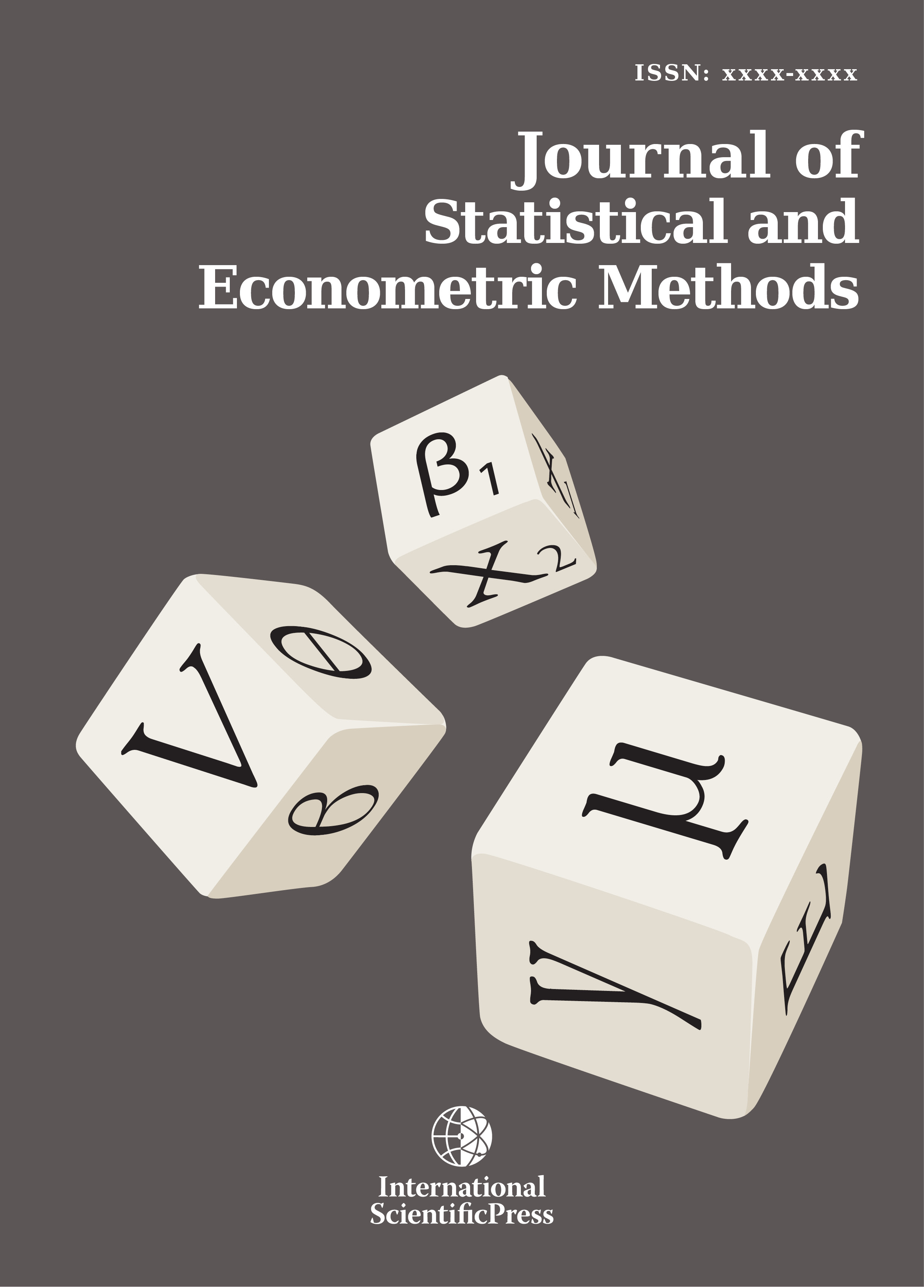Journal of Statistical and Econometric Methods
An Improved Composite Forecast For Realized Volatility
-
 [ Download ]
[ Download ]
- Times downloaded: 10783
Abstract
The purpose of this study is to determine whether a superior forecast for security volatility can be derived by finding a balance between historical data, implied volatility and an empirical implied distribution. Data are evaluated from option contracts and historical prices sampled on the first trading day of every month over a five year period from 2007 to 2012. These data are analyzed to determine the value of a weighted combination of the three sources of information and to uncover if this approach provides a forecast with a higher correlation to realized volatility. A linear optimization solution is formulated to determine the best possible composite volatility forecast. The results of the test show that there is statistically significant evidence in which the composite volatility forecast is preferred at a 95% confidence level over individual forecasts. With a better predictor for security volatility, this optimization process could be applied to the creation of portfolios that better meet investor risk preference.
